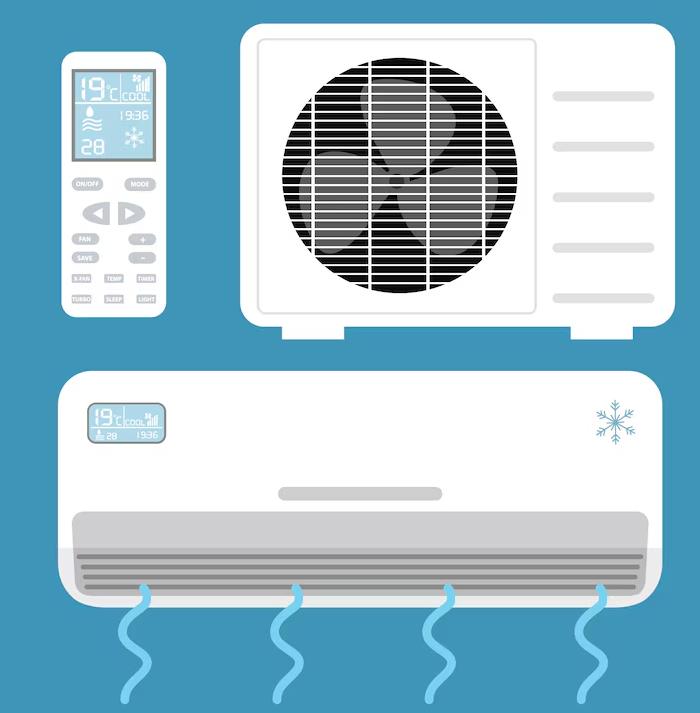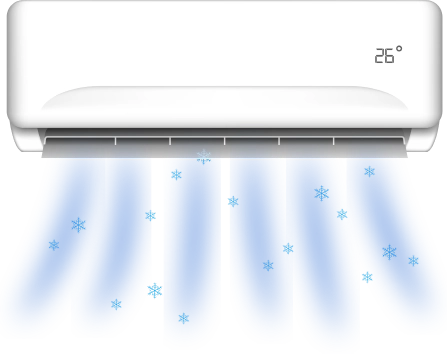An air conditioner isn’t just about comfort — it’s an essential part of your home’s energy efficiency and indoor air quality. But like any appliance, it doesn’t last forever. Over time, even the most reliable HVAC systems start to show signs of wear, inefficiency, and decline. Knowing when to replace your air conditioner can help you avoid costly repairs, high energy bills, and unexpected breakdowns.
In this article, we’ll explore the key signs that it may be time for AC replacement, how long a typical HVAC system lasts, and why investing in a new unit can improve your comfort and save you money in the long run.
How Long Does an HVAC System Last?
On average, an HVAC system lasts 12 to 17 years, depending on usage, maintenance, and model quality. After the 10-year mark, most systems begin to lose efficiency, and repairs tend to become more frequent and costly. If your air conditioner is approaching or has passed this age range, it may be time to start planning for a replacement — especially if you’re noticing some of the following signs:
1. Rising Energy Bills
Have your energy bills increased even though your usage hasn’t changed? Older systems often lose efficiency over time, especially if they haven’t been maintained regularly. If your HVAC unit is working harder to deliver the same cooling, it’s likely costing you more each month — a strong indicator that AC replacement may be the smarter financial choice.
2. Frequent Breakdowns and Repairs
If you’re calling your HVAC technician more often than usual, that’s a red flag. Frequent repairs not only add up but also signal that your system is nearing the end of its HVAC system lifespan. Instead of pouring money into a unit that’s on its way out, it might be time to invest in a new, more reliable system.
3. Inconsistent Temperatures
Do some rooms in your home feel too hot while others stay cold? Uneven cooling is a common symptom of an aging or improperly functioning air conditioner. This issue could stem from failing components, damaged ductwork, or just an outdated unit that can no longer handle your home’s cooling needs.
4. Strange Noises or Odors
Unusual sounds like grinding, rattling, or banging are never a good sign. Neither are musty or burning smells coming from your vents. These could point to serious issues within your HVAC system — some of which may not be worth fixing if the unit is already past its prime.
5. Poor Indoor Air Quality
An old or malfunctioning air conditioner can affect more than just the temperature — it can also impact your health. If you’ve noticed more dust, humidity problems, or an increase in allergy symptoms, it may be due to poor filtration or inadequate ventilation from your current system.
6. Your System Still Uses R-22 Refrigerant
If your AC unit was manufactured before 2010, it may still use R-22 refrigerant, which has been phased out due to environmental concerns. Since R-22 is no longer produced, refilling or repairing old systems that rely on it can be expensive — making AC replacement the most practical solution.

Benefits of Replacing Your Air Conditioner
- Improved energy efficiency: New systems use less electricity and lower monthly bills.
- Better comfort and air quality: Modern units cool more evenly and filter air more effectively.
- Quieter operation: Today’s systems are designed to be much quieter than older models.
- Smart features: Many new HVAC systems offer programmable thermostats and remote control options.
- Increased home value: A new system can boost property value and appeal to potential buyers.
Ready for a Replacement?
Don’t wait for your AC to fail in the middle of a heatwave. If your unit is old, inefficient, or showing signs of wear, it’s time to consider a professional evaluation. At JCL & Sons HVAC, we help homeowners find the perfect system for their needs — from expert recommendations to full installation.
Contact us today to schedule your AC replacement consultation and enjoy peace of mind with a system that works when you need it most.



